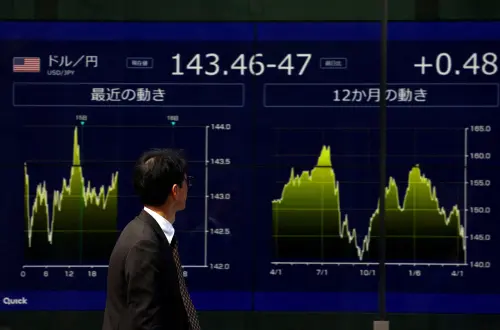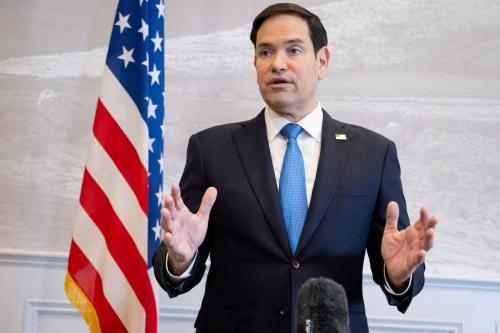On March 5, Chinese President Xi Jinping spoke to the Shanghai delegates to the National People’s Congress (NPC) session in Beijing. China’s top leaders use these side meetings to convey policy guidance on a range of issues, and Xi used this particular one to offer his perspective on relations with Taiwan. There has been some nervousness in the wake of the January 16 elections, which swept the opposition Democratic Progressive Party (DPP) to power in both the executive and legislative branches. Because the Beijing government has always suspected that the fundamental objective of the DPP is to permanently separate Taiwan from China, observers were waiting expectantly to hear what Xi would have to say about Taiwan.
Well before the March 5 speech, of course, Xi’s subordinates responsible for Taiwan policy had already laid out what Taiwan President-elect Tsai Ing-wen and her party would have to do to prevent cross-Strait relations from deteriorating, and they continued to emphasize those conditions after Xi’s speech. But analysts believed that Xi’s own formulation would be the clearest indicator of Beijing’s policy. He is, after all, China’s paramount leader, and his words carry a far greater weight than those of other Chinese officials.
This is what Xi said to the Shanghai NPC delegation about Taiwan [translation by the author, emphasis added]:
Compatriots on the two sides of the Strait are blood brothers who share a common destiny, and are people for whom blood is thicker than water…Our policy towards Taiwan is correct and consistent, and will not change because of a change in [who heads] the Taiwan authorities. We will insist upon the political foundation of the “1992 consensus,” and continue to advance cross-Strait relations and peaceful development…If the historical fact of the “1992 consensus” is recognized and if its core connotation is acknowledged, then the two sides of the Strait will have a common political basis and positive interaction [virtuous circle] can be preserved. We will steadily push forward cross-Strait dialogue and cooperation in various fields, deepen cross-Strait economic, social, and financial development, and increase the familial attachment and welfare of compatriots [on both sides], close their spiritual gap, and strengthen their recognition that they share a common destiny. We will resolutely contain the separatist path of any form of Taiwan independence, protect state sovereignty and territorial integrity, and absolutely not allow a repetition of the historical tragedy of national separation. This is the common wish and firm intention of all Chinese sons and daughters, and is also our solemn pledge and obligation to history and to the people. The fruits of cross-Strait relations and peaceful development require the common support of compatriots on the two sides; creating a common and happy future requires the common effort of compatriots on the two sides; and realizing the great revival of the Chinese nation requires that compatriots on the two sides join hands to work with one heart.
The italicized sentences are key: They state what the new DPP government should do if it wishes to maintain healthy cross-Strait relations and affirms Beijing’s resolve to oppose any behavior it doesn’t like. Xi didn’t threaten specific actions, but he probably didn’t have to. As always, Beijing reserves the right to decide what DPP attitudes and actions constitute separatism and a quest for Taiwan independence.
Xi didn’t threaten specific actions, but he probably didn’t have to.
Some background
There are two important points of reference contextualizing this statement from Xi.
Xi on November 7, 2015. First, there are his reported remarks on the future of cross-Strait relations during his unprecedented meeting with current Taiwan president Ma Ying-jeou in Singapore last November 7. At that time, Xi first appealed to ethnic solidarity and national unity, as he did again on March 5. He asserted that the stakes to end the state of division between Mainland China and Taiwan were very high because it was a critical part of how he views rejuvenating the Chinese nation—a theme he repeated to the Shanghai delegation.
Xi said Taiwan, under the new government, could either continue to follow the path it has walked for the last seven-plus years under the current Ma Ying-jeou administration (“peaceful development”), or it could take the path of renewed “confrontation,” “separation,” and zero-sum hostility. If Taiwan wished to follow the first path, Xi insisted, its leaders must adhere to the 1992 consensus and oppose “Taiwan independence.” Without this “magic compass that calms the sea,” Xi warned, “the ship of peaceful development will meet with great waves and even suffer total loss.” He was willing to overlook the DPP’s past positions and actions, but only if it identified with “the core connotation of the 1992 consensus” (a reference to the PRC view that the Mainland and Taiwan are both within the territorial scope of China, a view the DPP contests). Xi alluded to the “core connotation” on March 5 but did not re-state its content. Xi then made clear that if “disaster” occurred, it would be the DPP’s fault—it was therefore up to Tsai, he implied, to accommodate to Beijing’s conditions.
In language and tone, Xi’s Singapore statement was far more strident and alarmist than what he said on March 5. He made that first statement more than two months before the election, when perhaps he thought that tough talk would weaken Tsai’s and the DPP’s appeal to voters. If that was his objective, he failed. The tone of his March 5 remarks was more modulated, but the substance was the same. Beijing would define the crossroads that Taiwan faced, and it was up to Tsai to take the right path—at least what it defined the right path.
Beijing would define the crossroads that Taiwan faced, and it was up to Tsai to take the right path—at least what it defined the right path.
Tsai on January 21, 2016. Second, there is an interview that Tsai gave to Liberty Times (Tzu-yu Shih Pao) on January 21—less than a week after the elections—in which she sought to meet Beijing partway. For the first time, she used the phrase “political foundation” and said it had four elements:
- “The first is that the SEF-ARATS discussions of 1992 are a historical fact and both sides had a common acknowledgment to set aside differences and seek common ground;”
- “The second is the Republic of China’s current constitutional order.”
- “The third is the accumulated results of the more than 20 years of cross-strait negotiations, exchanges, and interactions;” and
- “The fourth is Taiwan’s democratic principles and the will of the Taiwanese people to make sure that Taiwan voters understood the limits to his tolerance.”
So, Tsai accepts the 1992 meetings as a historical fact and acknowledges that the two sides did reach an agreement of sorts, but does not accept the 1992 consensus itself as a historical fact. She spoke more about process than content. The Republic of China’s “current constitutional order” is also part of the foundation, which some have read as Tsai’s acceptance that the Mainland and Taiwan are both parts of China’s territory (Beijing’s “core connotation”)—I, however, am not so sure. Tsai did not reject Xi’s requirements out of hand, but she framed them in her own way.
So are ties growing friendlier?
Was Xi’s tonal moderation on March 5—relative to November 7—an indicator that mutual accommodation was going on? Perhaps. But the fact that the November meeting was ostensibly private while the March speech was public might explain the difference.
Moreover, the stream of Chinese articles and statements since March 5 that explicitly restate Beijing’s long-standing preconditions are reason to doubt that much accommodation is actually occurring. The three basic scenarios I outlined last December—accommodation, limited Chinese punishment of the Tsai administration, and comprehensive punishment—are still in play, and the key variable remains whether Xi and his subordinates trust Tsai Ing-wen’s basic intentions. That is, will they accept her recent formulations as a good-faith effort to avoid deterioration? The next milestone will be May 20, when Tsai Ing-wen gives her inaugural address and may provide a more detailed formulation of her approach to China.
The Brookings Institution is committed to quality, independence, and impact.
We are supported by a diverse array of funders. In line with our values and policies, each Brookings publication represents the sole views of its author(s).



Commentary
Decoding Xi Jinping’s latest remarks on Taiwan
March 17, 2016